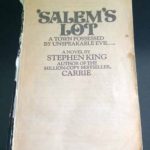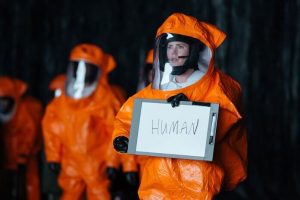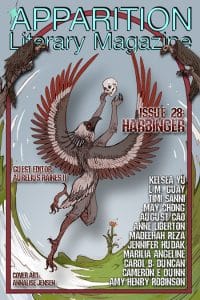The world is cuckoo, crazy-nuts right now. Here’s the thing though; the world has always been nuts. Sure the looney-fire is super hot right now, but it’s been a hot mess before, and we’ve used the power of story to survive. Historically, fiction has helped distract us from the dumpster fire, while teaching us how to deal with the madness and to hope for a better future. We find our souls in fiction.
 I was a strange, sensitive child growing up in a world that didn’t yet recognize depression or anxiety in kids. Bonus points for being dreamy, creative, and sort of odd in a town of 900 people. I didn’t fit, so I looked for solace in story. At 11 years old, I picked up Salem’s Lot and found my escape from loneliness in the terror Stephen King wove through my mind. The vampires (Salem’s Lot), ghosts (The Shining), and rabid dog (Cujo) were comforting, familiar monsters. Real life bullies were much more complicated, and at least with a book, I knew how many pages of scary stuff I had left. I could always just put the book down.
I was a strange, sensitive child growing up in a world that didn’t yet recognize depression or anxiety in kids. Bonus points for being dreamy, creative, and sort of odd in a town of 900 people. I didn’t fit, so I looked for solace in story. At 11 years old, I picked up Salem’s Lot and found my escape from loneliness in the terror Stephen King wove through my mind. The vampires (Salem’s Lot), ghosts (The Shining), and rabid dog (Cujo) were comforting, familiar monsters. Real life bullies were much more complicated, and at least with a book, I knew how many pages of scary stuff I had left. I could always just put the book down.
Fantasy was an easy escape too. The Doctor would land his TARDIS in my backyard and we’d save the galaxy together. Captain Kirk would marry me and together we’d explore the stars. Or Whitley Strieber’s aliens would abduct me and I’d never be heard from again. They were all ways to escape the bullying and mundane life.
Recently, reading Seanan McGuire’s Every Heart a Doorway, I was transported back to how it felt to be a teen and completely out of place in this world. The story is heartbreaking and aspirational. It proposes that a place for the most awkward and misplaced exists, a place where everyone can find companions and even their own doorway to a true home.
On a much bigger, civilization scale, story has helped humankind survive, (probably lots of other species too, but I can only speak human…and a smidge of Klingon). Lisa Cron’s book Wired for Story comments on the basic need for story:
 “…back in the Stone Age, even though those shiny red berries looked delicious, we remembered the story of the Neanderthal next door who gobbled ‘em down and promptly keeled over, and made do with a couple of stale old beetles instead.
“…back in the Stone Age, even though those shiny red berries looked delicious, we remembered the story of the Neanderthal next door who gobbled ‘em down and promptly keeled over, and made do with a couple of stale old beetles instead.
Story was so crucial to our survival that the brain evolved specifically to respond to it, especially once we realized that banding together in social groups makes surviving a whole lot easier.”
Stories help us escape the madness, but they also inform us of possible dangers to better navigate the world around us. Parable of the Sower is nearly 20 years old, but Olivia Butler’s prose feels like it could be ripped from the headline of yesterday’s Washington Post:
““Freedom is dangerous but it’s precious, too. You can’t just throw it away or let it slip away. You can’t sell it for bread and pottage.”
“Cities controlled by big companies are old hat in science fiction. My grandmother left a whole bookcase of old science fiction novels. The company-city subgenre always seemed to star a hero who outsmarted, overthrew, or escaped “the company.” I’ve never seen one where the hero fought like hell to get taken in and underpaid by the company. In real life, that’s the way it will be. That’s the way it is.”
Our society internalizes stories and refers to them when things go wonky. References to dystopian novels like 1984, Animal Farm, and any Philip K. Dick novel are multiplying daily as society mirrors those premises and goes through rapid political, social, and, particularly, technological growing pains.
 But there is hope, and, depending on what you’re reading it, was either inside us all along or out there in the stars. Arrival, both the story, and movie, blended human potential and friendly alien guidance to a better future for the planet. It was happily non-dystopian, an aspiration of the magical, fantastic, and grounded.
But there is hope, and, depending on what you’re reading it, was either inside us all along or out there in the stars. Arrival, both the story, and movie, blended human potential and friendly alien guidance to a better future for the planet. It was happily non-dystopian, an aspiration of the magical, fantastic, and grounded.
I still hope for a Roddenberry-type future. This was what I loved about Star Trek, even though it had issues, (mainly TNG, as cheese-ball as it feels now): The concept of how great our potential would be if human constructs of race, class, and gender disappear. What would the world be like with full parity?
All of these thoughts, hopes, fears, distractions – were all created by writers. Words are powerful, even if they aren’t Sumerian and written in an ancient book made out of human flesh, inked in blood of the innocent. Stories hold so much power. They’ll see us through this bad patch, and as they do, we can use our pain (or joy) to build worlds and stories to help others through the next time everything gets nutso.
Read the full speech by the recently departed visionary Ursula K. Le Guin from the National Book Awards in 2014
“We live in capitalism, its power seems inescapable – but then, so did the divine right of kings. Any human power can be resisted and changed by human beings. Resistance and change often begin in art. Very often in our art, the art of words.”
Ursula reminded all of us that we are powerful. Words and Story offer escape, direction, and hope. That’s something to remember when it feels like everything is spinning out of control.
You are powerful. Use your words wisely.
featured image credit: Ryan McKee
Red Berry image: Thomas Hawk





